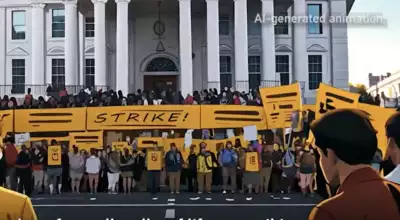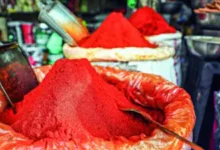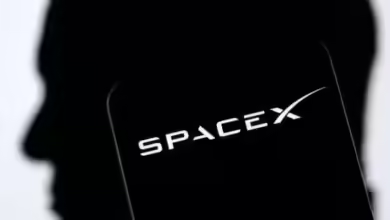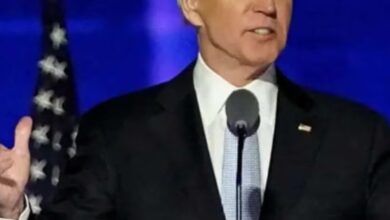“American mirage or American dream: China’s use of AI to make fun of the US”
China‘s public broadcaster CGTN has produced an animated series that scrutinises the United States and portrays it as a country in decline, in a startling example of the use of technology for propaganda. Artificial intelligence is used in the “A Fractured America” series to produce information that challenges the viability of the “American Dream.” CGTN’s animated analysis of the show

The series includes a film titled “American Dream or American Mirage,” which explores controversial topics in the US, such as drug addiction, imprisonment rates, and the growing wealth and poverty disparity, according to an Aljazeera article.
With a background evoking stormy sky above New York City, the animation ends with a critique of the American ideal, implying that it is out of reach for many.
The stylised look and synthesised sounds of these AI-generated works draw attention to the technical developments in propaganda creation. As stated by the Aljazeera article, “The series exemplifies how artificial intelligence can streamline and economise content creation, allowing for rapid dissemination of tailored narratives,” according to Henry Ajder, a UK-based specialist in generative AI.
“The fifty-cent army”
China has been conducting influence operations worldwide for a long time on the internet, and its efforts are becoming more concentrated on social media platforms. The series is a reflection of Beijing’s continuous effort to portray itself as gaining prominence in the world while portraying the US as in decline. This story has been repeated on a number of Chinese official media platforms, which use artificial intelligence (AI) to produce more interesting and realistic-looking material.
The term “wumao,” or “fifty cent army,” describes China’s extensive online user base, which consists of people who either work for the Chinese government or volunteer to spread pro-government ideas and have an impact on online debates. Though the real remuneration, if any, may vary, the word “wumao” (五毛), which translates to “fifty cents,” is derived from the alleged money these users get every post. In order to promote the goals of the Chinese Communist Party (CCP) and fend off criticism of its acts, China uses an army of online trolls to dominate the narrative surrounding critical matters both domestically and globally.
There are several different social media platforms, forums, and comment areas on news websites where the wumao operates. Their actions include making flattering remarks about the government, disseminating false information, assaulting CCP detractors, and sometimes starting campaigns of cyberbullying against dissidents.
The wumao’s existence supports a regulated and restricted online environment that serves the CCP’s objectives by influencing public opinion, stifling resistance, and nurturing these outcomes. The impact and strategies of the wumao are expected to change and grow as digital platforms advance and take centre stage in international discourse, positioning them as a major player in the field of international information warfare.
US and Taiwan in the sights
Beijing’s digital influence tactics are mostly aimed at Taiwan, which just elected William Lai Ching-te as president, and the US, which is dealing with its own political issues, according to the Aljazeera report. The creation of AI-generated material and deepfake films during Taiwan’s election highlights how information warfare is always changing.
The emergence of artificial intelligence (AI) and its use in producing lifelike content has made it very difficult to determine the legitimacy of digital content. Microsoft has seen that it is becoming more difficult to distinguish between state-sponsored material and AI-generated images that are receiving a lot of interaction from actual social media users. Concerns over the integrity of public debate are raised by the potential for AI to strengthen astroturfing tactics, which fabricate a false sense of broad agreement on divisive subjects, particularly in the run-up to elections.







